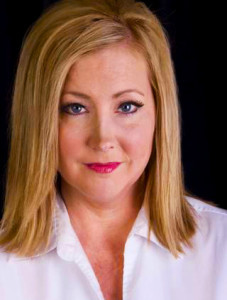The Makings of a Successful Writing Group (a guest blog)
When I decided to start a writing group, I didn’t just slap something up on social media or tack a flyer on the bulletin board of a book store or coffee shop to solicit writers. I privately recruited people whose writing I had already read and respected – people I liked. After I secured my top picks, I put the idea out on Facebook WITH some conditions. I listed the genres that need not apply, apologized in advance for not welcoming them with open arms, and wished them well. For fear of offending anyone, I won’t list those genres here. Let’s just say that I am prone to flashbacks from having to endure the readings of exhaustingly plodding poems about leaves or some convoluted mash-up of intergalactic contention between angels and space aliens that left me twitchy by the end. I have no poker face. I just don’t relish having to slap on an encouraging smile as I ride out lengthy descriptions of serial-killer-high-school-science-teachers slashing body parts in some haunted shack off the I-70 in Eastern Utah. There’s a reason I don’t read that stuff. If I’m being honest, the only book I’ve ever read by horror master Stephen King is his book on writing which is called… and this is brilliant… On Writing. It’s a page-turner! And it didn’t make me pee down the side of my leg. In any case, regardless of your genre of choice, get into a group that is able to support you the best.
Once you get a group together, here are some brass tacks to make sure it moves and grooves like it should:
- Meet once a week. It’s a big commitment, but the time you invest in this group will return to you tenfold and more. We’ve talked with groups who only meet once a month. Guess what? They don’t have websites. They don’t go on field trips. They aren’t making any kind of an impact on their communities. They aren’t building their platforms, and many aren’t getting published. They write, and they critique each other – period – which is fine if that’s all a group wants to do. But The Flying M-Inklings have higher aspirations, and so do most writers we talk to.
- Find the perfect number of members for your group. The Flying M-Inklings have seven members, six who meet regularly plus Cody who we’ve named our M-Inkling Emeritus because he moved away. (He still shares his writing wisdom on our site.) Keep the group small enough so that solid relationships can be built but large enough so that if one or even two members can’t make it one week, it doesn’t leave a gaping hole in the group.
- Once members are fully committed, be loyal to one another. When the M-Inklings first began to meet, we were liquid. No one was necessarily permanent. We stayed fluid and tested the reliability and loyalty of our members with a rule that basically said if a person is gone three consecutive weeks, they’re out. As we got to know each other and people proved their commitment to the group (not to mention their writing chops), we began to gel. After a year-and-a-half, we are concrete. People can move out of state, and they are still very much a part of us and will be forever. Our vision is to becom
 e iridium in the years to come, resistant to corrosion. Till death do us part.
e iridium in the years to come, resistant to corrosion. Till death do us part. - Have a regular submission schedule and set aside one week a month that is devoted to business. The M-Inklings have a private Facebook page where we communicate with each other and post our submissions. At the top of the page, Colby has magically made our submission schedule stick to the top. (He’s handy like that.) Katie and I know we’re always up the first Saturday of the month. Nic and Shannon are the following week, and Colby and Brandon The fourth (and fifth when there is one) Saturday of each month is when we get down to the business of our website; we plan our field trips, retreats, and community outreach endeavors. We also sit in a think tank and dream up new and fresh ways to get ourselves into trouble. Flexibility is key, obviously, but the structure has helped us to be phenomenally productive.
- Make sure writers submit a few days before your group meets. This way everyone else has time to read, contemplate, and provide a quality examination of the work. Members should come prepared to have a meaningful conversation. The only time we ever read to each other is during our annual retreat in October or while our families are all camping together in the summers. We don’t expect one another to necessarily critique those pieces – we simply enjoy and talk about them. If your group’s protocol is to read the work right there in the meeting, expecting people to shoot from the hip in response, their feedback is probably lacking. No… their feedback is lacking, sorry to say; however, if you plan ahead and make sure your group can read your work before everyone arrives, this is easily remedied. Your time will be much better spent and your critiques will be meaningful and beneficial.

- Have a plan for how your group will spend your time together. Our group is together every Saturday for three hours. We’ll take the first hour and talk, laugh, eat a bagel, and simply catch up on how our lives are going. It’s pretty chill – we have to wait for the caffeine to kick in, after all. The second hour is when we critique whichever two people have submitted pieces that week. The third hour, we write. Not one minute is wasted – especially not that first hour when all we do is sit and shoot the breeze. I think that’s been the magic that is us. We straight up love each other. The M-Inklings produce a colossal amount of work, we get out into the community, and we’re making a name for ourselves. Believe me, we’re busy too. But the best work we do is friendship – hands down – and we consider that first hour every Saturday nothing less than sacred.
- Don’t get your panties in a wad if someone (or everyone) in the group pans your work. Yeah, I said it. This friendship that you build with each other comes in darn handy when there is constructive criticism “Flying” around. Being vulnerable in your writing is the nature of the beast and, to be frank, every member has to possess a measure of maturity if the group is going to be successful. Take it or leave it, but be open to whatever the others have to say. I submitted a piece once about rage – I thought it would be really edgy. The group thought it was hiLARious! They laughed their butts off, and then they all did Daisy Martin impressions with their favorite lines. Did I storm off? Did I throw a fit? Did I threaten to quit? No. I told them, “I can’t stand any of you,” and they laughed even harder. Good self-esteem is a non-negotiable. If you can’t handle your work being sidelined by the people who love you, you might want to avoid ever pitching it to agents and publishers who reject people for a living.
- Celebrate every victory. Without this, you’re all writing with invisible ink, and you won’t last. People will reach their goals and see their literary dreams come true. Don’t allow those moments to disappear without fanfare. Throw a party, have a BBQ, or sneak some champagne into your beloved coffee shop so you can make mimosas!
I’m sure there are many of you out there who could add to this list. Maybe you agree with us or maybe you disagree with something. What say you? (We all have good self-esteem and promise not to get our panties in a wad!) Start a thread and put your wisdom on this post for us and for everybody else – we’ll get on and write you back!
Daisy
—————————
Daisy Rain Martin is editor in chief for RAIN Magazine. She is also the author of Juxtaposed: Finding Sanctuary on the Outside and If It’s Happened to You, which can both be found on her website. Look for Hopegivers: Hope is Here in 2015.



9 Comments
To clarify, I’m not saying that every group I have been in has been negative. (waves to former and current group members!) I have just never had one nearly as productive as you are describing. And the ones I have tried to start have been the least productive of all. I can be the worst at setting guidelines and I will let life get in the way. How do you handle the tough stuff? Like when someone tends to monopolize the conversation? And what if someone doesn’t have pages ready on time when it’s their turn (which has happened to me numerous times. I’m far from a perfect group member). Also, do you name a leader to make decisions? I’ve been in groups that seemed too large to me
and then one person made a unilateral decision to invite more people.
Cathy Shouse
Hi there Cathy,
I am “Katie” in that Daisy is talking about from the group. One of your questions caught my attention…”And what is someone doesn’t have pages ready on time when it’s their turn?” Just this week, I was supposed to submit, but didn’t have done what I wanted. We give each other grace. My kids have been super sick and I can’t seem to get them well. So my writing hat has been put aside the last couple weeks and the mom hat has taken priority. It happens. It is called life. We all have had our weeks were “things” happen and we can’t submit. If the group was not understanding about this kind of stuff happening, we definitely wouldn’t still be together or maybe I should say I wouldn’t want to be a part of it. Guidelines are good, but with that has to come understanding. We have committed to each other, but we all have lives outside the writing group. We know each others families and situations. We have a become a family. In that we love each other and know what is going on in our outside lives. Building those relationships have been key. If I did not submit for three months, I have confidence that the group would be worried about me, not my writing.
You asked if we have a leader to make decisions. The answers is yes and no. When we started out Daisy was kind of “in charge”, just because she started it. Over time we have grown. We are a team. We collaborate with each other. We value every ones input and ideas. One person making all the choices is not very productive. I love being apart of a team. I value them and they value me. We trust each other because we talk and communicate. It is not just about writing. We have joked about our Saturdays being group therapy. We want all of our members to be successful, other wise, none of us really can be.
I hope this makes some sense. The key is the relationship piece. Once you have that, the rest really does fall into place. Our group is small and that makes it easier to build relationships. I am sure if the group was too large you would end up with smaller groups within the group itself. That could be disasters and lead to division. There isn’t a lot of trust in a situation like that. Which would be really hard to submit a piece to people you aren’t feeling safe with.
Thanks Daisy. You’ve nailed the make-up of a good group. I lead a couple myself and know how important it is for all members to truly like each other. Without friendship, criticism isn’t well received. When we know the others only want to help us grow, it’s much easier to take.
True that, Bruce! We are super lucky to have each other. I would love to know more about the different groups you’ve had. On my third and final post for Chip, there are some questions that we have for other writing groups! I hope you’ll weigh in and give us some advice!
Wow. This is good stuff. You’ve inspired me to start a group like this.
DO IT, Ellen! And let us know how it goes! We love connecting with writers and writing groups! It’s what we’re here for!
Seriously! Keep us posted!
Thanks for providing all of these details. I think the most eye-opening part is how you recruited people. That makes so much sense, not to be random and post an open call. Plus, I admire that you limited the genres to invite. I tend to want to nurture everyone but am little use critiquing genres I dislike.
I really admire that you all commit to three hours on Saturdays. I have so many family scheduling conflicts on that day. I think the last hour of writing is brilliant. Other than a few meetings in novel writing month, I haven’t found anyone interested in writing together.
How long are the pieces you critique? And do some of you pair up at other times and exchange pages, so you get a fully critiqued book more quickly? Also, do you find marketing your books works if you all have different genres? I’m saying, if you are not aiming for the same readers, does cross-marketing really help? Or did I misunderstand what you mean by marketing in the context of your group?
Last thing. Do you think your writing group is highly unusual in how cohesive and effective it is? I do, and I’m wondering if that is because you had common goals and a similar writing level when you started.
Cathy Shouse
Hi Cathy! Thanks for stopping by. I’m “the Colby” listed in Daisy’s piece above.
Our pieces generally sit in the 2,000-word-or-less range (or a few pages, as we think of it). We do go above that (like when someone has a full chapter they want us to look at) but haven’t tried any book-length critiques.
In terms of pairing off, 99% of the time everyone is critiquing in a round-robin format. That said, we’re all working on several projects at the same time, so it’s not unusual for two members to get together to look over a longer or more targeted piece that one of them wrote. This, however, is always in addition to our normal critiquing schedule.
Marketing our work does seem to work, even with different genres. The work we are marketing up to now has been online material — blog posts, mostly. In fact, Daisy often complains that her friends share my work more than they share hers! 😉 I think I just got lucky.
I think or cohesion and effectiveness is unusual, but certainly not impossible to emulate. It just takes time to build. The single two most important things we did: set up a recurring time, and set a submission schedule so that everyone submits. We found that the more time we spent together (even if we weren’t critiquing and were just telling stories about our lives) the closer we grew together. And if you’re really looking for tips on how to build a great group, I suggest Patrick Lencioni’s book, “The Five Dysfunctions of a Team.” He’s got some great tips that are aimed at businesses, but really work well in this context, too.
Again, thanks for stopping by Cathy! Let me know if there are any other questions I can help answer.
Hi Cathy! Thanks for posting! I’m with you — I’m not sure what I could contribute to a writer who writes in a genre I just flat don’t like. It would be like lugging a rock up a hill and aintnobodygottimefordat!
I’m so glad that the Saturday-thing worked out for us. Our families are pretty supportive of us. I think people just need to find a group of people that can all decide on a good time and location. Our coffee shop on Saturday mornings is a great place to get into the “zone”.
Colby answered the length questions and, yes, there are times when two of us will do a side gig, of sorts, when we’re looking for something specific. If any of us want advice on structure, we straight up go to Colby. It’s his area of expertise. Nic is our syntax guy. Katie can find metaphors we didn’t even know were there. Shannon is our big picture girl. Brandon is all about the details. He’s a pacing guy too. Cody asks all the right questions. I want to know if you’re reaching your intended audience. We all bring different ideas to the table.
We are just starting to REALLY get into the marketing of our group as an entity and, by extension, our work. We’re a work-in-progress, as they say, and we’re figuring it out. My third and final post on here will be about making an impact on the community, establishing a presence, and promoting literacy, so I hope you’ll stop back in.
Finally, I just think these people are cool. I like them. The fact that I was able to persuade some of my favorite people in the world to join is a blessing, truly. And I’m happy to say that they have some writing chops! I look forward to reading their work, and I’m grateful to have them read mine and giving me their honest opinions.
Let us know if you hook up with a writing group! You can follow our website: http://www.flyingminklings.org and keep up with what’s going on. We love to interact with other writers and other writing groups!
Take care!
Daisy Rain